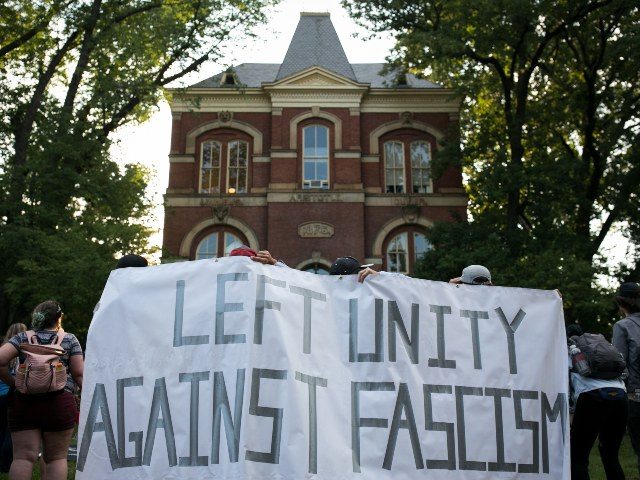Administrators at the University of Scranton are allowing the school’s student government to ban Turning Point USA (TPUSA) from campus. The Foundation for Individual Rights in Education (FIRE) is calling on the university to uphold its students’ First Amendment rights.
After University of Scranton’s administration promised a group of conservative students that their TPUSA organization would be recognized on campus, administrators instead sided with the school’s student government, which decided to ban the conservative student group, according to a statement by FIRE on Thursday.
FIRE is now calling on the university to “defend students’ right to form political groups free from political discrimination,” adding that the school “must respect its students’ ability to hold viewpoints that members of the student government may deem unpopular.”
“Yikes, nope, denied,” said University of Scranton student government president in response to a social media post about creating a TPUSA group on campus, according to FIRE, which added that the president further implied that even if the conservative students received enough student government support to become an officially recognized group, he would unilaterally veto the vote.
After allegedly being told in October that TPUSA Scranton had been approved, student government members later rescinded approval in a closed-door meeting, whereafter they told TPUSA members that they did not, in fact, approve the conservative group.
According to FIRE, the school’s student government said that TPUSA Scranton had won a majority vote, but that they needed two-thirds — a super-majority — of student government’s approval in order to become an officially recognized student organization on campus.
“It is irrelevant whether the threshold vote required is a simple or a two-thirds majority,” said FIRE attorney Katlyn Patton in a letter to the university administration. “The two-thirds majority requirement simply allows a smaller faction to refuse rights based on viewpoint. In either event, the result is impermissible at an institution that promises its students freedom of expression.”
“Becoming a recognized student group at the University of Scranton should not be a popularity contest,” she added. “The rejection of TPUSA Scranton after several hours of discussion and a secret meeting is a clear result of viewpoint discrimination — and FIRE will defend all students, regardless of political ideology, who want to express their views by forming a student organization.”
While the University of Scranton is a private school, FIRE noted that the university is still “both morally and contractually bound to honor the explicit promises of freedom of expression it makes to its students.”
The organization further noted that the university’s “Statement of Philosophy” states that “[f]reedom of thought, freedom of expression, and freedom of the individual must be preserved.”
“While our goals on campus were to promote political activism, engage in friendly discussion, and even participate in community service, it was made clear that our voices have been silenced,” said student Noah Kraft, the prospective treasurer of TPUSA Scranton.
FIRE said that it first wrote the university president, Scott R. Pilarz, on November 13, and received a response from the school on November 26, informing the organization that the school will be refusing to defend its students’ rights.
“It’s a shame that the University of Scranton’s administration has failed to recognize that some members of our student Senate have abandoned the idea of representing the interests of their constituents,” said student Cody Morgan, the prospective president of TPUSA Scranton.
“Instead, they used the power of their office to push their own political agendas and ideologies, which are in no way reflective of the majority of the student body, to suppress the voices and ideas of students who share opposing viewpoints,” he added.
While many universities allow their student governments to have a certain degree of autonomy, school administrators have also been known to intervene and override resolutions that may involve student government members exuding their personal political biases through the decisions that they make regarding their conservative peers.
Earlier this year at Texas State University, for example, the university president reiterated the importance of free speech in a statement elaborating on why the school will not allow its student senators to ban TPUSA from campus, despite the student government voting to do so.
You can follow Alana Mastrangelo on Twitter at @ARmastrangelo, and on Instagram.

COMMENTS
Please let us know if you're having issues with commenting.